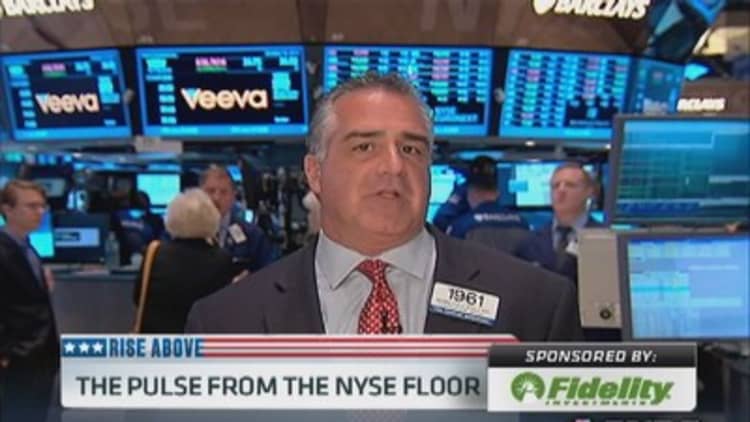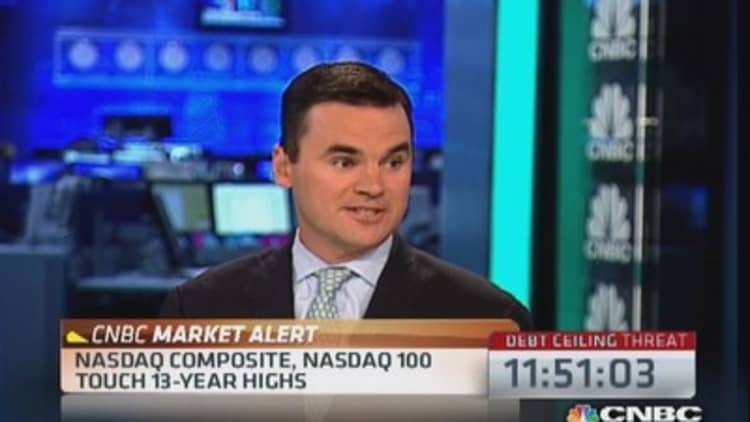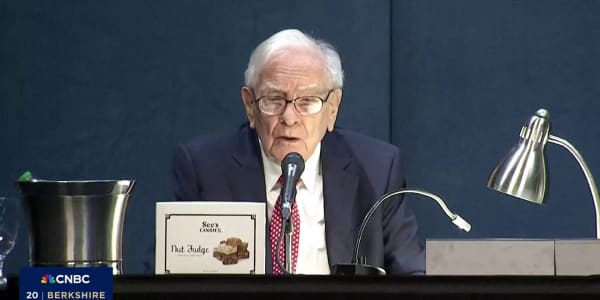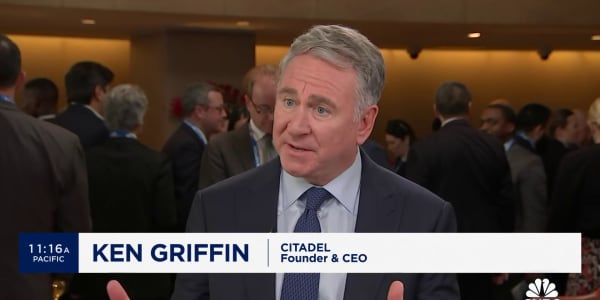Washington may have just swung at strike three of its efforts this year to scare Wall Street into doing its bidding.
With the seemingly inevitable conclusion to the debt scare in view—a short-term deal that pushes the hard choices off to another day—another Capitol crisis has passed with investors barely batting an eyelash.
First it was the vaunted "fiscal cliff" of mandated tax increases. Then it was the sequestration spending cuts. In October it's been the threat of debt default. All three were supposed to spell market mayhem. None has.

Indeed, Wall Street seems to have tuned out Washington and all of its doomsday prognostications, and it's hard to imagine what if anything coming out of the dysfunctional nation's capital that could scare the markets.
(Read more: Reid: Deal reached on ceiling, shutdown—for now)
"The lack of reaction from the markets—not just stocks but everything—was more a step back toward mental health," said Jim Paulsen, chief investment strategist at Wells Capital Management. "We're starting to realize that we've been suffering from Armageddon hypochondria."
From Paulsen's view, this wasn't much of a crisis to begin with—an observation shared by most other market experts.
"This one verges on an economic and financial joke. This is just a bunch of politicians acting badly," he said. "Two years ago, when the economy was in a fragile mental state, it might have gotten a reaction. Now we're battle weary and tired of the boy who cried wolf."
To be sure, the worst-case scenario in the debt battle was severe. That would have entailed a full-blown default that would have sent CEOs and investors alike into a foxhole, plunging the economy into a recession or worse.
(Read more: Budget impasse 'a wash' for markets: Shiller)
But even in an atmosphere as polarized as the current one in Washington, nobody really expected the damage to go beyond a technical default in which the U.S. missed an interest payment on its debt, and even that scenario was considered unlikely.
Still, in a recent broadcast interview with CNBC, President Barack Obama warned Wall Street that it was taking the crisis too lightly.

Treasury Secretary Jack Lew, meanwhile, set Thursday as D-day for a default scenario, even though there are enough reserves to fund the government for another two weeks or so.
(Read more: Relax! US won't run out of money Thursday)
Banking analyst Dick Bove this week speculated that politicians wanted the Dow Jones industrial average to lose 1,000 points, as a prod to force lawmakers into action.
Markets were having little of it, however.
True, interest rates on the one-month Treasury bill surged in anticipation that the government might not initially pay off on the short-term debt. And the stock market did have some roller-coaster days.
But that was about the extent of the damage.
(Read more: Markets rally, but bond market still fears default)
The market knew that Washington politicians "don't want to go down in history as the ones who brought down the U.S. credit rating," said Doug Roberts, managing principal at Channel Capital Research.
After weathering the financial crisis and numerous others before it, Roberts said the main thing investors are concerned about it is liquidity—and its chief source these days, the Federal Reserve.
"As long as the Fed is pumping it may affect your asset allocation but it's not going to affect your risk trade," he said. "The problem is when you have an exogenous event that the Fed can't control."
With Obama nominating the dovish Janet Yellen as the next Fed chair, Wall Street's hopes for more liquidity like the current $85 billion-a-month bond-buying program likely will be met.
(Read more: Is Washington crying wolf over a default?)
Going forward, then, the expectation is largely for a continuation in the current bull run that has pushed the up 19 percent this year.
"Since the backdrop is reasonably good—strong economic growth in the United States, Japan looks good, even Europe is slowly emerging from recession—investors are feeling risky assets are the place to be," said Laurence Wormald, head of buy-side risk research at London-based SunGard.
That doesn't mean something can't go wrong, just that Washington's endless political machinations are unlikely to be the root.
Wormald said growth in economies such as China, India and Indonesia will pose far more vexing obstacles.
"The real problems are not the manufactured ones. There will be another political crisis, a budget crisis, in January now, won't there?" Wormald said. "The real ones are the underlying macro problems."
—By CNBC's Jeff Cox. Follow him on Twitter @JeffCoxCNBCcom.






